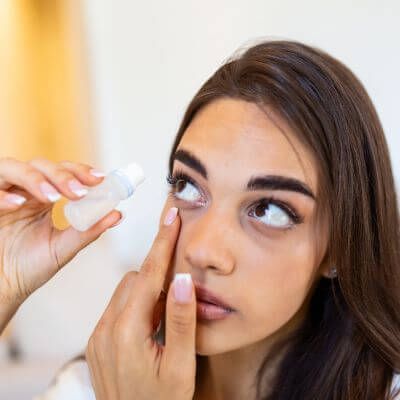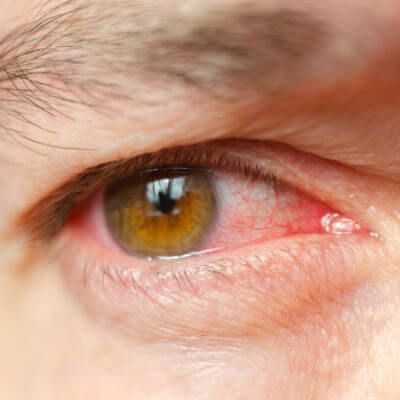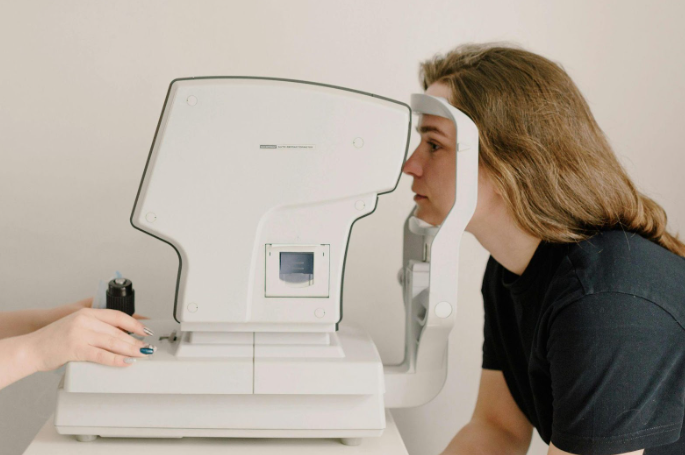What You Should Know Before Self-Diagnosing Chronic Dry Eyes
You’ve probably seen a commercial for chronic dry eyes at least once in your life. If you remember Bill Stein from the 1990s, you’ll know exactly what we mean. While his commercials were funny, anyone with the condition knows it’s not funny at all.
Chronic dry eye is caused by insufficient tear production or rapid tear evaporation. This results in discomfort and potential vision problems. Various factors contribute to its development, including aging, medical issues, and many medications. Professional diagnosis and management are vital to prevent worsening symptoms and eye damage. Baptist Eye Surgeons offers specialized care for management and vision preservation.
What is Chronic Dry Eye?
Chronic dry eye ( dry eye syndrome ) occurs when the eyes don’t make enough tears. It can also occur when the tears evaporate too quickly. This leads to discomfort, irritation, and potential vision issues.
Various factors contribute to its development, including:
- Aging
- Environmental factors like dry air or wind
- Allergies
- Medical conditions such as autoimmune diseases
- Hormonal changes
- Medications
These factors can disrupt tear production or the quality of tears being produced.
Treatment strategies vary from warm compresses to prescription eye drops. They aim to increase tear production, protect the eye’s surface, and reduce symptoms.
Distinguishing chronic dry eye from temporary dryness is crucial. It requires ongoing management to prevent worsening symptoms and potential eye damage. This emphasizes the need for professionals to diagnose and treat dry eye syndrome.
Chronic Dry Eye Symptoms
Recognizing symptoms of chronic dry eye is crucial for prompt intervention. Eye disorders can have many symptoms. This can make it hard to diagnose on your own, even when the surface of the eyes feels irritated or gritty.
Other symptoms include:
- Stinging and burning sensation
- Feeling like something scratchy or gritty is in your eyes
- Eye irritation and redness
- Blurry vision
- Light sensitivity
- Pain when wearing contact lenses
- Excess tears inside your eyes
- Strings of mucus in or around your eyes
- Heaviness of the eyelids
Chronic Dry Eye Causes
Dry eye syndrome can have various causes. One is inadequate tear production by the lacrimal glands . This leads to a deficiency in the tear film’s lubrication. The meibomian glands are responsible for producing the oily layer of tears. They can contribute to increased tear evaporation and dry eyes when malfunctioning.
Certain medical conditions such as rheumatoid arthritis may also lead to dry eyes. This can be due to inflammation affecting the tear ducts or as a side effect of medications. Insufficient tear quantity or quality exacerbates dryness, irritation, and discomfort.
The Dangers of Self-Diagnosing Chronic Dry Eyes
You may self-diagnose your dry eye condition and buy eye drops for temporary relief. After all, you can pick up the “cure” for these irritating symptoms at your local convenience store.
There is a time and a place for over-the-counter eye drops. However, you should contact your eye doctor if you have chronic dry eye symptoms for over 48 hours. Here’s why:
Using non-prescribed eye drops for a long period of time can be unhealthy
There are many over-the-counter drops available for eye symptoms, but each works differently.
Treating dry eye symptoms isn’t the same thing as treating the cause
Some dry eye symptoms are easily controlled with artificial tears from the drugstore. Unfortunately, more aggressive treatments are sometimes necessary. Knowing why you’re experiencing symptoms is important to finding permanent relief.
Dry eyes might not actually be causing your symptoms
Symptoms like stinging, light sensitivity, and blurry vision aren’t limited to dry eyes. They’re also found in several other eye disorders. Some of these disorders can lead to permanent damage if left untreated. An exam from your eye doctor is the only way to determine the underlying cause.
If you have dry eyes, you might have other undiagnosed eye conditions
Chronic dry eyes go hand-in-hand with other eye disorders . Patients may also have entropion (eyelids turning inward) or ectropion (eyelids turning outward). Corneal erosions are also common and should be monitored for. These issues should be addressed as quickly as possible to avoid further eye damage.
Self-diagnosing chronic dry eyes may seem easy, but it’s not the best solution. Contact us if you experience any of the eye symptoms listed above for more than 48 hours.
Get a Comprehensive Eye Exam in Knoxville, Sevierville or Morristown, Tennessee
Comprehensive eye exams are important for diagnosing and managing chronic dry eyes. These exams assess various factors contributing to dry eyes, including:
- Tear production
- Eye surface health
- Potential underlying conditions
At Baptist Eye Surgeons, we offer specialized care for dry eyes. Our eye surgeons treat complex cases using advanced tools and treatment plans. They provide relief using therapies like prescription eye drops, lifestyle modifications, and more. Regular monitoring and tailored interventions ensure your comfort and preserve your ocular health.
Are you suffering from the symptoms of dry eye syndrome? Contact us today to schedule your appointment!
Chronic dry eye arises from inadequate tear production or excessive tear evaporation. Factors like aging, medical conditions, and specific medications contribute to its onset. Professional diagnosis and treatment are essential to prevent symptom deterioration and eye damage. The ophthalmologists at Baptist Eye Surgeons are experts at managing dry eye and preserving vision.
Baptist Eye Surgeons is an ophthalmological practice in Knoxville, TN, Morristown, and Sevierville. Call us at 865-579-3920 for more information or to schedule an appointment .
*This blog was originally published in April 2017. It has since been updated for clarity and new information.






